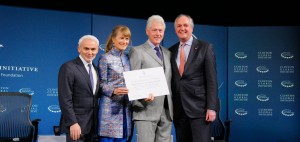New Initiative to Potentially Help as Many as 60,000 Farmers
 According to the Huffington Post, farmers in the developing world will soon reap the benefits of an initiative geared towards assisting their communities economically.
According to the Huffington Post, farmers in the developing world will soon reap the benefits of an initiative geared towards assisting their communities economically.
The effort is called the Enhanced Livelihoods Investment Initiative (ELII) and in his recent Huffington Post article, Robbie Couch stated that it “could help improve the lives of as many as 60,000 local farmers throughout Africa, Latin America, South Asia and the Caribbean.” At least $10 million will be used over a three-year span to launch and support “private businesses that support smallholder farmers in underserved regions, according to a statement from nonprofit Acumen.”
One of ELII’s main goals will be to further connect the company’s global supply chains to smallholder farmers as well as provide sustainable agriculture, nutrition and hygiene training to workers. Although this is a very strong and important tie to make, it is one many companies don’t dare to create, “as providing impoverished farmers with products in hard-to-reach areas is difficult to do while also turning a profit.”
How exactly the $10 million will be distributed and allocated has not yet been finalized; however, it has been revealed that this new partnership intends to “create jobs and boost incomes for smallholder farmers by 50 percent.”
The launch of ELII (a partnership between Acumen, Unilever and a program created by the Clinton Foundation – the Clinton Giustra Enterprise Partnership) was announced at the Clinton Global Initiative’s 2015 Winter Meeting in New York City this past Tuesday.
Clinton said that this initiative will not only give local farmers the tools to expand their skills and enable them to “lift themselves from poverty”, but it will also bring them into the international market. Paul Polman, CEO of Unilever, stated that ELII has the potential to have a very dramatic impact on the world; it could revolutionize how his own company does business and more importantly how the world produces food.
To read the original article featured in the Huffington Post, click here.


